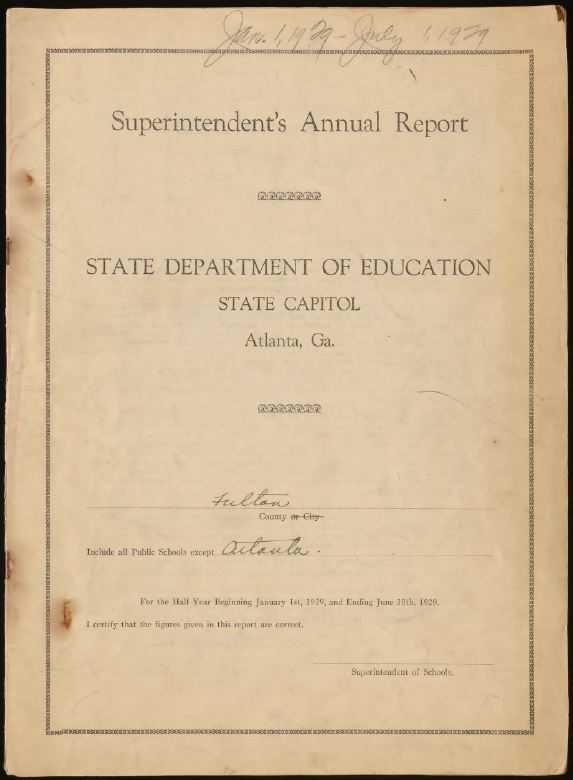ATHENS, Ga. — The Digital Library of Georgia (DLG) is pleased to announce the availability of Superintendent’s annual reports for the Fulton County, Georgia school system at dlg.usg.edu/collection/fcs_superintendents. These resources have been made available online thanks in part to the DLG’s Competitive Digitization grant program, a funding opportunity intended to broaden DLG partner participation for statewide historic digitization projects.
These annual reports were submitted by local, public school districts to the State School Superintendent’s Office as part of their operations to receive accreditation and funding, and contain demographic information pertaining to the growth of the school system located in and around Atlanta between the years 1929 and 1977. Data was collected on both African American and white schools and was expressed using the “dual school system” terminology of “colored” and “white.” The reports also contain material related to school employees, building materials and valuations, as well as transportation and supply costs. A small portion of this collection includes reports from Milton and Campbell counties just before they merged with Fulton County.
Michael Santrock, the archives and collections specialist at Fulton County Schools Archives notes:
“Information gathered from school systems have a great potential to illuminate the history of a place…from learning and teaching to voting and playing, they are institutions that reflect the social and cultural milieus of the districts they reside within. The Superintendent’s Annual Reports of Fulton County Schools document this story by offering a look at the growth of metro Atlanta throughout some very crucial decades of the twentieth century. The oldest portion of this collection provides evidence of a largely rural and segregated district during the Great Depression, while the latter portion is a culmination of the movement to integrate the schools after the Brown v. Board of Education decision of 1954–a process that lasted seventeen years. In this respect, the reports help to clarify one of the defining issues of the Civil Rights Movement.”
About Fulton County Schools Archives
The Fulton County Schools Archives preserves and maintains a wide range of historic materials such as board minutes, school yearbooks, and audiovisual recordings while serving the public as a repository for these historical collections. Visit www.fultonschools.org/archives.



